The most famous Nepos is perhaps Cornelius, a Gallo-Roman historian who was a friend of Catullus, Cicero and Pomponius Atticus who, therefore, lived in the time of Augustus and left an anthology of biographies entitled De viris illustribus , among other works. But, four centuries later, at the end of ancient Rome, there was another character with the same cognomen that very well could rival him in fame and transcendence. This is Julius Nepos, who is considered by many to be the last legal emperor of the Western Roman Empire.
Officially it is considered that this last president was Rómulo Augustulus (actually a derogatory name that History has given him, since the real one was Rómulo Augusto Pío Félix Augusto). He was the son of General Flavius Orestes, a Pannonian nobleman who had been ambassador to the court of Attila and participated in the negotiations that the King of the Huns carried out with Emperor Valentinian III, later commanding the troops of foederati , reaching the position of magister militum presentelis (head of all armies), precisely during the government of Emperor Julius Nepote. We will see later.
In 475 AD Orestes was appointed magister militum to Gaul, where he suppressed a Visigoth uprising. Upon returning he staged a coup against the emperor, seizing Ravenna, the imperial capital, and forcing Nepote to take refuge in his native Dalmatia. For legal reasons, Orestes could not assume the throne, so he proclaimed his offspring in the fall of that same year.
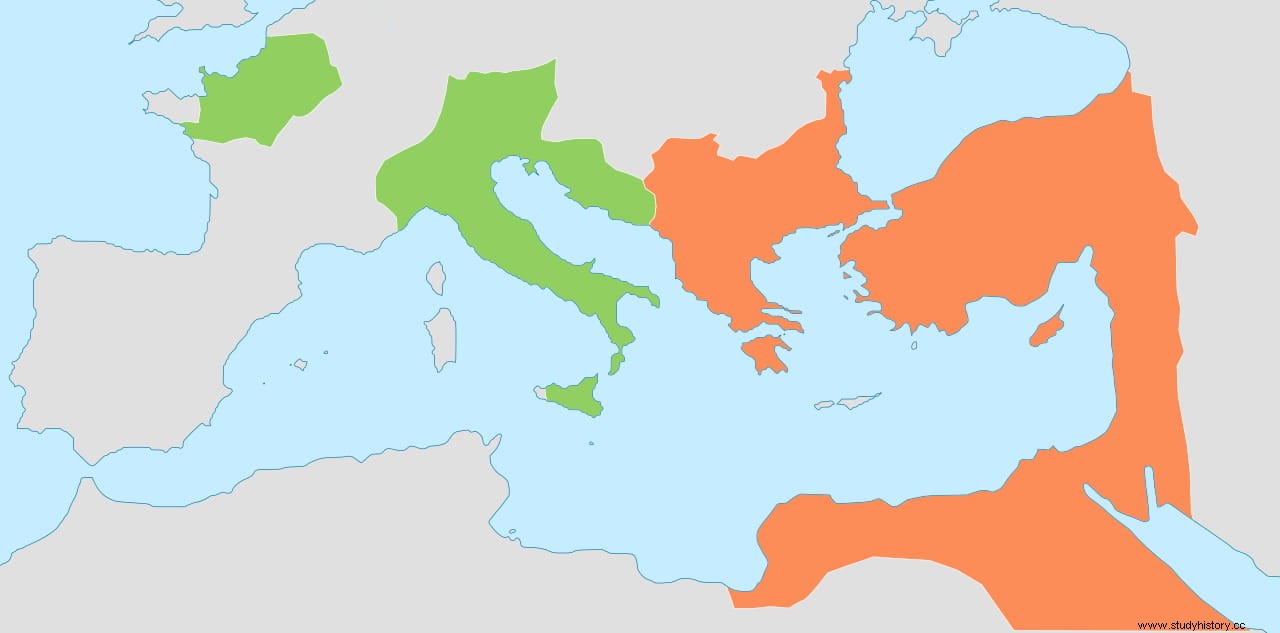
The ease with which the rebels seized power is explained by the fact that, in the words of the historian Sergei Kovalyov,“in fact, the Western Roman Empire no longer existed. In Italy, an illusory power of the emperors still lasted formally, but they were puppets without authority in the hands of the leaders of the barbarian mercenary troops» .
And indeed, between 455 and 476 there had been as many as nine, none of whom reigned for more than five years and all were forcibly deposed. Furthermore, imperial authority had had to move to the frontiers; we have already seen that the capital was moved to Ravenna and often the emperor was established in Gallia Narbonensis.
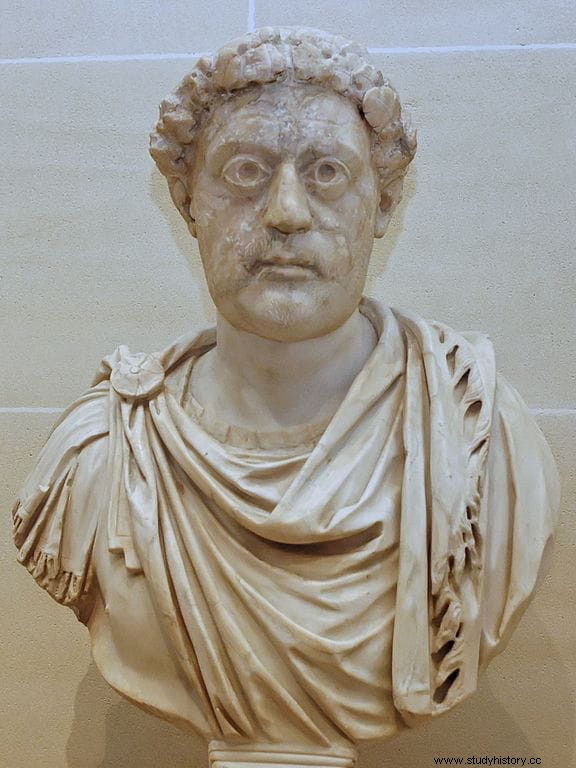
By then, the Eastern Roman Empire was the repository of the true power of yesteryear and its owner used to treat the West as if it were a vassal state. For this reason, despite the fact that, before his death, Leo I the Thracian he had named successors to Anthemius in Constantinople and Julius Nepos in Rome (or in Ravenna, de facto ), the Eastern Romans attended with certain indifference to the insurrection of Orestes; They did not recognize Rómulo Augustulus but they did not lift a finger against him either.
The rightful emperor also evidently refused to accept it. Flavius Julius Nepote Augustus was born around 430 in Dalmatia, the province of which he would become governor. His origins, like most of his reign, are obscure.
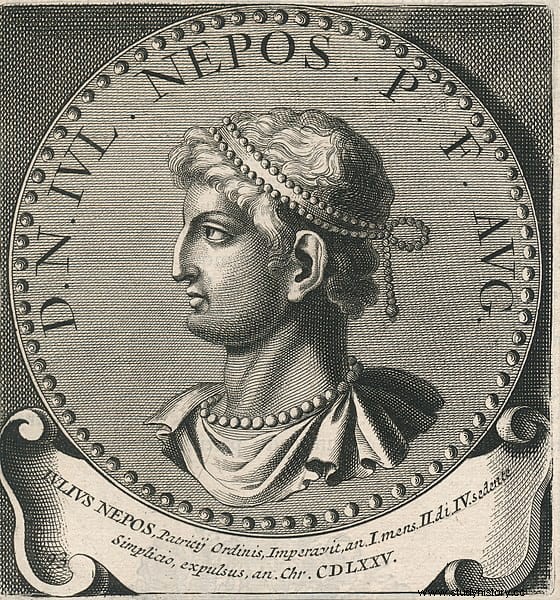
The East Roman historian Jordanes identifies him in his Romana work as the son of Nepotianus, a general who served Emperor Majorian between 457 and 461 as magister utriusque militiae next to Egidio, until the Visigoth Theodoric II pressed for his dismissal. Current historians, on the other hand, believe that the parent would be a different Nepocian.
The reason why he used the term Nepos is also unknown, but in that first line, meaning "nephew" it may have been an allusion to his aunt, Empress Elia Verina, wife of the Eastern Emperor Leo I the Great and sister of Marcellin, a military man and patrician who in 454, before the murder of his friend Flavio Aetius by Valentinian II, had segregated Dalmatia and, in practice, ruled it autonomously although subject to nearby Constantinople.
This royal ascendancy would favor Julius Nepote's support to displace the usurper Glicerio, whom Gundebald had unilaterally proclaimed, a magister militum Burgundian, after overthrowing Anicio Olibrio (who, in turn, was also not legitimate).
In any case, Nepos received the approval of the new eastern emperor, Zeno the Isaurus , to land with an Illyrian army at Rome. Virtually without a fight, he expelled Glicerius - who was pardoned and made bishop of Salona - in 474, beginning a reign about which we know little, given the paucity of sources.
It is known that, to initially establish his position, he tried to apply a policy of peace with the barbarians. He achieved it with Euric's Visigoths, to whom he ceded part of Gaul (Auvergne) in exchange for recovering Provence, thanks to the diplomatic arts of Bishop Eipafanio de Pavia, who had long ago negotiated a truce between the emperor Anthemius and the famous Ricimer.
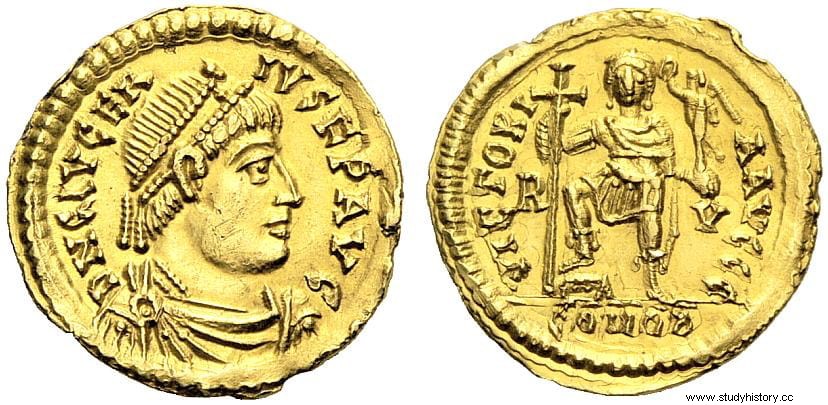
Instead, talks failed with the Vandals, who already had a treaty with the Eastern Roman Empire and did not need another. In addition, there were also no territories available to cede to them, since their king Genseric already owned North Africa, Sicily, Corsica, Sardinia and the Balearic archipelago, so at most they could be offered recognition of their authority over those sites. But they did not consider it necessary; it was more profitable for them to continue their usual raids along the Italian coast with almost no opposition.
However, Nepos's real problems were internal, as we saw. He did not have the support of the Senate, which regarded his proclamation as an imposition from Constantinople, so, considering that he needed to assert his authority, he chose a magister militum strong to lean on. He made a complete mistake in the designation because the chosen one was Flavio Orestes, to whom the concession of the patriciate was not enough to satisfy his ambition. That Orestes had at his command the legions and the foederati he gave him real power and we have seen how he used it.
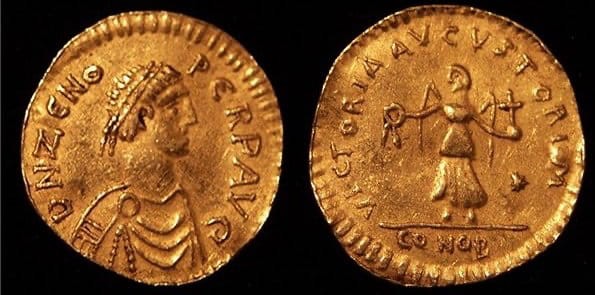
While the magister proclaimed emperor his son Romulus Augustulus, who was only about ten years old and therefore controlled by his father and his uncle Saul, Nepos escaped trying to continue his rule from Dalmatia, since he had the support of Gaul and the Roman Empire Eastern. In the midst of the chaos, everyone wanted to get a slice and the foederati they demanded that a third of the land be given to them, just as had been done with the Gallic tribes. Orestes rejected the demand and the barbarians chose as king the Herul Odoacer, a military man who had already intervened in the conflict between Anthemius and Ricimer, without being clear who he supported.
Odoacer led his people against Rome, defeating Orestes and his brother in 476. He had the doors of the Italian peninsula open but did not want to risk a confrontation with the Eastern Roman Empire, so he offered Zeno the unified throne in exchange. that he left the administration in his hands as dux .
But Zeno had also received a request for help from Julius Nepos in recovering the power from him, so, avoiding openly committing himself to either, he encouraged them both to reach an agreement. In practice, given the harsh reality, that meant admitting that Odoacer would take over Rome.
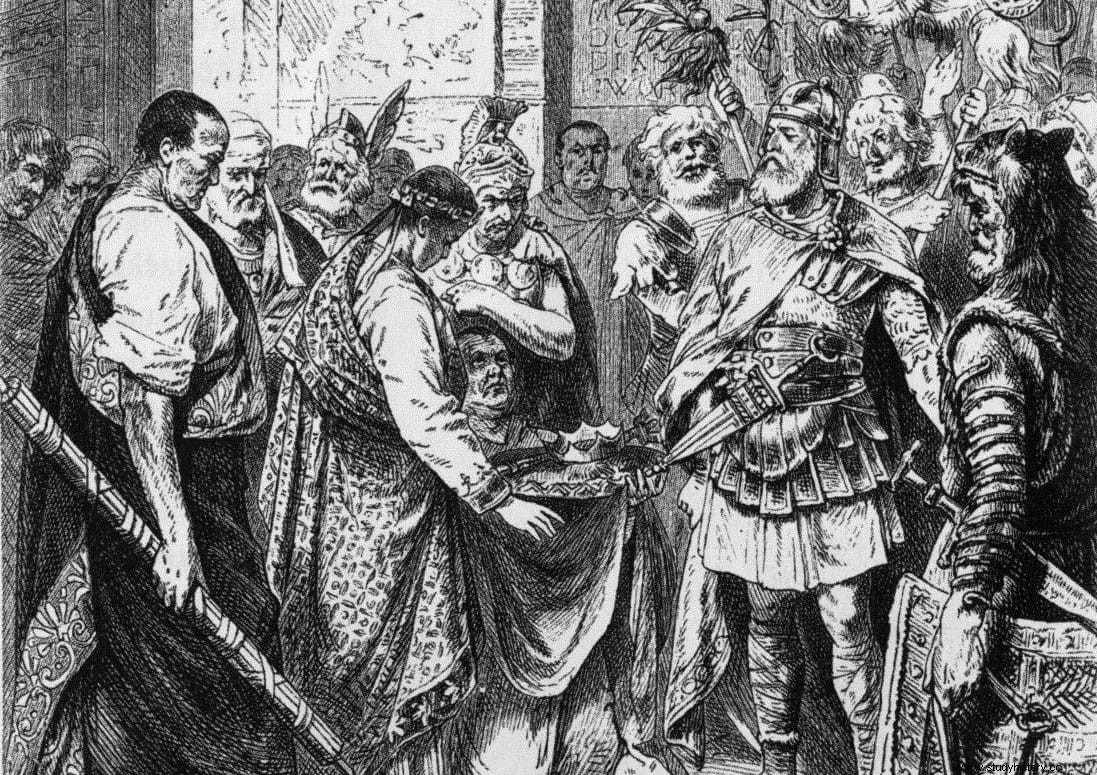
And indeed, the barbarian leader -although converted into a patrician- entered the city, deposed Rómulo Augustulus (whom he spared for being a child) and proclaimed himself Rex Italy subject to the Eastern Roman Empire. The one in the West ended like this de facto , although Nepote continued to serve as emperor from Dalmatia. Odoacer himself considered it prudent to pretend that he was and even minted coins with the effigy of Nepos, because after all the last magister militum and dux of Suessonium (northwestern Gaul), General Afranius Siagrius, still recognized his authority.
That precarious fiction was maintained for three years. It fell apart in 479, when Nepos began to organize a campaign with the aim of reconquering Italy, and the following year he was killed, whether by two servants or by his soldiers, it is not known.
The circumstances are confused and the intervention of Glicerio, the ex-emperor converted into a bishop, who thus obtained his revenge, is pointed out; that the events occurred in Salona could be an indication. Now then, Odoacer was aware of Nepos's warlike intentions and must also have been responsible for him, given that he later named Glicerius Bishop of Milan.

General Ovida, one of those presumed responsible for Nepote's death, was the one who assumed command in Dalmatia. It did not last long, because months later Odoacer used the assassination as a pretext to intervene in the region, incorporating it into his domains after defeating him. It was the end of an era.
